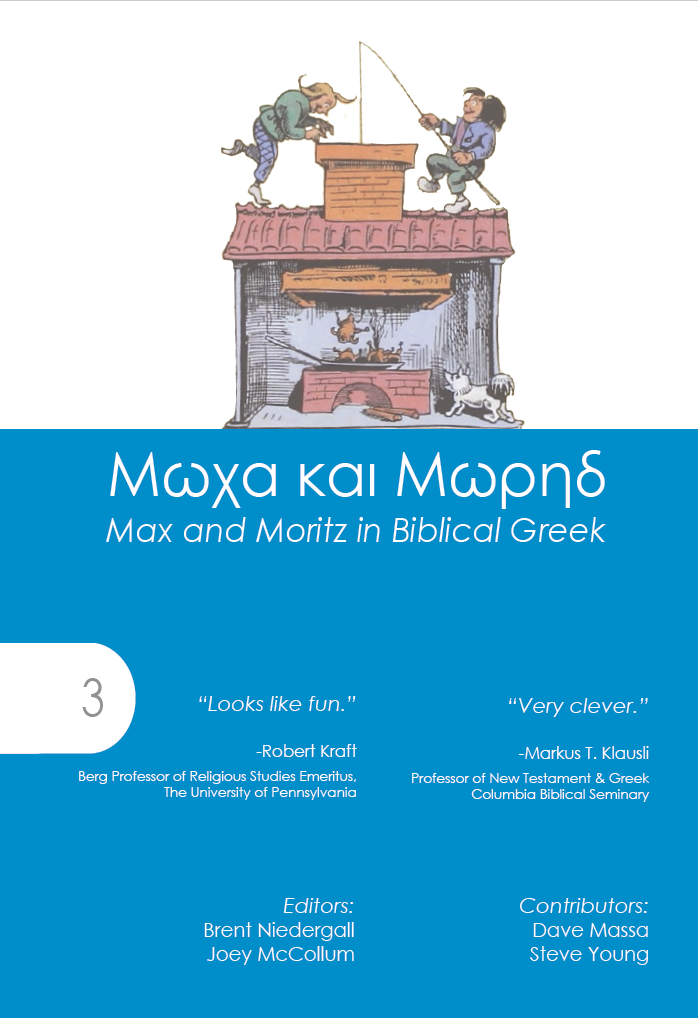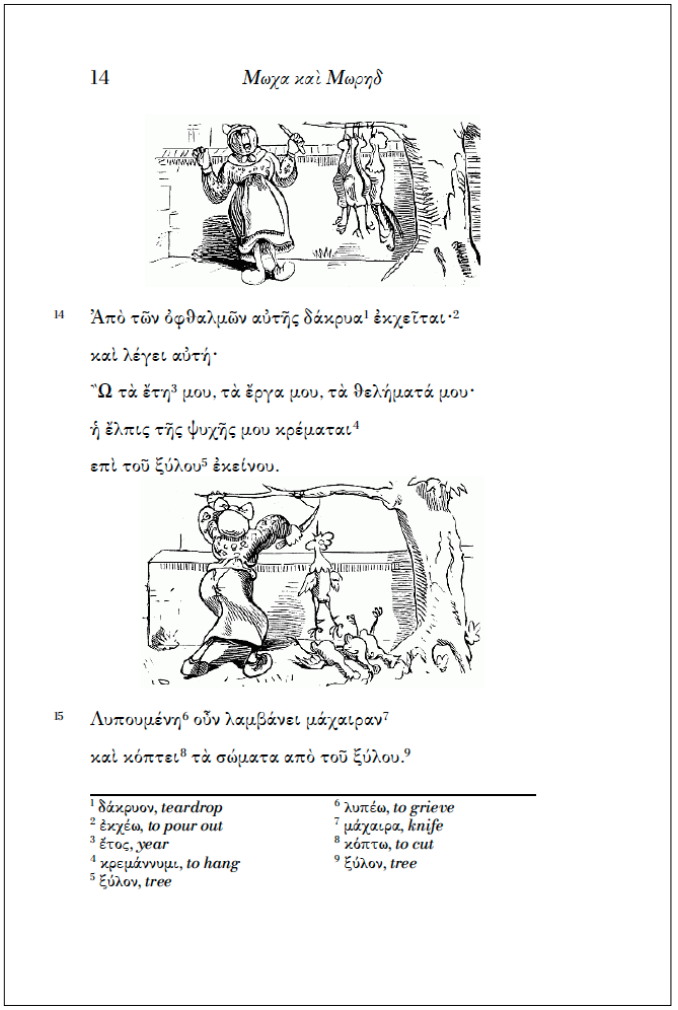Max and Moritz in Biblical Greek
Joey McCollum, Dave Massa, Steve Young, and I initiated this work as an entertaining exercise in Koine composition. After we shared this exercise (a translation of one chapter into Koine) on the B-Greek forum and received some encouraging feedback, it grew into a serious project whose goal was to provide students of biblical languages with a resource that ventured beyond the textbook into new, yet familiar territory.
While some original short works had been composed in Koine Greek (see Where Are the Carrots? A Story in Koine), relatively little effort had been put into translating cherished fables and fairy-tales into biblical languages. This was true for Wilhelm Busch’s 1865 German classic, Max und Moritz, whose only ancient Greek translation was in classical Greek (Max und Moritz auf Altgriechisch) until we published the first Koine translation.


Max und Moritz is a celebrated fixture of German culture. The story spread beyond the boundaries of geography and time, inspiring translations into hundreds of other languages and retaining its popularity throughout the twentieth century and into the twenty-first.
This work is intended to be an engaging resource for students of biblical Greek at an intermediate level of proficiency. Specifically, a reader who has completed two semesters of Greek will be equipped to read it without the use of a lexicon.
It would also be a fitting gift for children or young adults whose educational curriculum features biblical Greek. This work falls under the third tier of GlossaHouse’s Accessible Greek Resources and Online Studies (AGROS) series; in other words, it features reader’s aids in the form of vocabulary glosses for all words occurring fewer than fifty times in the Greek New Testament. We have also written a new English translation intended to reflect any paraphrases we made of Busch’s text in the process of rendering it in Koine. This translation is included as an appendix in order to assist readers further.
Endorsements
Helps and aids for New Testament Greek readers abound, but when do you find one that is both helpful and fun? This little group of stories, creatively composed in a Greek aimed at mid-level readers of the New Testament, will challenge you and delight you at the same time. Someone has said that an English version is always playing in the back of our heads when we read the Greek NT. If we then turn to secular literary or classical Greek, we often find it just too unfamiliar and difficult. In this little gem are unfamiliar stories retold in a Greek that will resonate with you. And if you still stumble over a word, the editors have provided a gloss for you. Both the authors and Glossa House are to be commended for this effort. I am hoping to see more of these in the future!
William C. Varner
Professor of Bible & Greek, The Master’s University
This is really a great idea! The majority of German speakers grow up with an appreciation for Max and Moritz, the rascals story in seven tricks. Now Greek students everywhere can read these humorous stories and improve their language abilities at the same time!
Martin Rösel
Professor of Hebrew and Old Testament, University of Rostock